Ditapis dengan
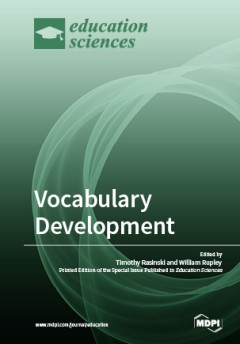
Vocabulary Development
Vocabulary knowledge has long been recognized as an essential component of reading comprehension and is a contributing factor for using reading as means of learning. Vocabulary can and does impact meaningful comprehension of text for struggling through accomplished readers. Simply put, readers who know the meaning to the words they encounter when reading a text are more likely to comprehend…
- Edisi
- -
- ISBN/ISSN
- 978-3-03897-735-3
- Deskripsi Fisik
- 162 hlm.
- Judul Seri
- -
- No. Panggil
- -
Chapter Enrichment of the Medical Vocabulary in the Greek-Speaking Medieval C…
Byzantine rule in southern Italy came to an end in the late eleventh cen- tury. Reggio in Calabria and Bari in Apulia, the last Byzantine strongholds in the two areas on the Italian peninsula, fell to the Normans in 1060 and 1071, respectively.1 However, Greek culture was preserved in these areas in 156 157 Enrichment of the Medical Vocabulary in the Greek-Speaking Medieval Communities of S…
- Edisi
- -
- ISBN/ISSN
- 978-605-4642-76-2
- Deskripsi Fisik
- 18 hlm.
- Judul Seri
- -
- No. Panggil
- -
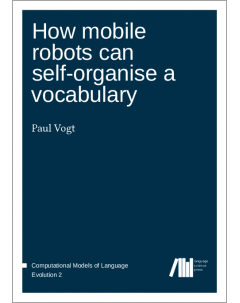
How Mobile Robots Can Self-Organise a Vocabulary
One of the hardest problems in science is the symbol grounding problem, a question that has intrigued philosophers and linguists for more than a century. With the rise of artificial intelligence, the question has become very actual, especially within the field of robotics. The problem is that an agent, be it a robot or a human, perceives the world in analogue signals. Yet humans have the abilit…
- Edisi
- -
- ISBN/ISSN
- 978-3-944675-43-5
- Deskripsi Fisik
- 286 hlm.
- Judul Seri
- -
- No. Panggil
- -
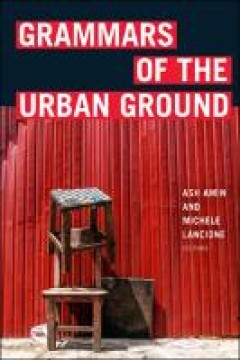
Grammars of the Urban Ground
The contributors to Grammars of the Urban Ground develop a new conceptual framework and vocabulary for capturing the complex, ever-shifting, and interactive processes that shape contemporary cities.
- Edisi
- -
- ISBN/ISSN
- 9781478022954
- Deskripsi Fisik
- 260 hlm.
- Judul Seri
- -
- No. Panggil
- -

Toward a Cognitive Classical Linguistics
Building on the momentum enjoyed by cognitive-functional approaches within Classics, this volume gathers a series of papers that bring the study of grammatical and syntactic constructions in both Greek and Latin under the perspective of theories developed in cognitive linguistics, revealing the role of human embodiment in determining the meanings of various linguistic phenomena.
- Edisi
- -
- ISBN/ISSN
- 978-3-11-061634-7
- Deskripsi Fisik
- 430 hlm.
- Judul Seri
- -
- No. Panggil
- -
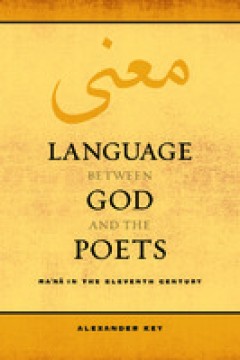
Language between God and the Poets
How does language work? How does language produce truth and beauty? Eleventh-century Arabic scholarship has detailed answers to these universal questions. Language Between God and the Poets reads the theory of four major scholars and asks how the conceptual vocabulary they shared enabled them to create theory in lexicography, theology, logic, and poetics. Their ideas engaged God and poetry at t…
- Edisi
- -
- ISBN/ISSN
- 9780520298019
- Deskripsi Fisik
- 322 hlm.
- Judul Seri
- -
- No. Panggil
- -
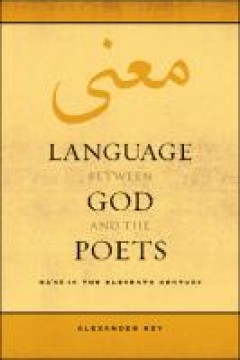
Language Between God and the Poets (Volume 2.0)
How does language work? How does language produce truth and beauty? Eleventh-century Arabic scholarship has detailed answers to these universal questions. Language Between God and the Poets reads the theory of four major scholars and asks how the conceptual vocabulary they shared enabled them to create theory in lexicography, theology, logic, and poetics. Their ideas engaged God and poetry at t…
- Edisi
- -
- ISBN/ISSN
- 9780520298019
- Deskripsi Fisik
- 298 hlm.
- Judul Seri
- -
- No. Panggil
- -

Complete Illustrated Encyclopedia of Symbols, Signs & Dream Interpretation
The book is divided into five main sections. Part One provides an overview of the uses, meaning and development of signs and symbols as seen from a number of different perspectives: historical, cross-cultural, sociological and psychological. Part Two looks at the applications of symbols in many areas of life, and includes chapters on culture and communication, abstract symbols, myth and t…
- Edisi
- -
- ISBN/ISSN
- 9780754817420
- Deskripsi Fisik
- 520 hlm.
- Judul Seri
- -
- No. Panggil
- -

A Descriptive and Comparative Grammar of Western Old Japanese
This is the revised, updated and enlarged second edition of the first detailed descriptive grammar in English (indeed, in any language other than Japanese and more complete than even any grammar in Japanese) dedicated to the Western Old Japanese, which was spoken in the Kansai region of Japan during the seventh and eighth centuries. The grammar is divided into two volumes, with the first volume…
- Edisi
- -
- ISBN/ISSN
- 9789004422810
- Deskripsi Fisik
- 997 hlm.
- Judul Seri
- -
- No. Panggil
- -
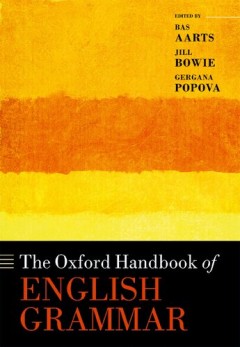
The Oxford Handbook of English Grammar
This handbook provides an authoritative, critical survey of current research and knowledge in the grammar of the English language. Following an introduction from the editors, the volume's expert contributors explore a range of core topics in English grammar, beginning with issues in grammar writing and methodology. Chapters in part II then examine the various theoretical approaches to grammar, …
- Edisi
- -
- ISBN/ISSN
- 9780198755104
- Deskripsi Fisik
- 864 hlm.
- Judul Seri
- -
- No. Panggil
- -
 Karya Umum
Karya Umum  Filsafat
Filsafat  Agama
Agama  Ilmu-ilmu Sosial
Ilmu-ilmu Sosial  Bahasa
Bahasa  Ilmu-ilmu Murni
Ilmu-ilmu Murni  Ilmu-ilmu Terapan
Ilmu-ilmu Terapan  Kesenian, Hiburan, dan Olahraga
Kesenian, Hiburan, dan Olahraga  Kesusastraan
Kesusastraan  Geografi dan Sejarah
Geografi dan Sejarah